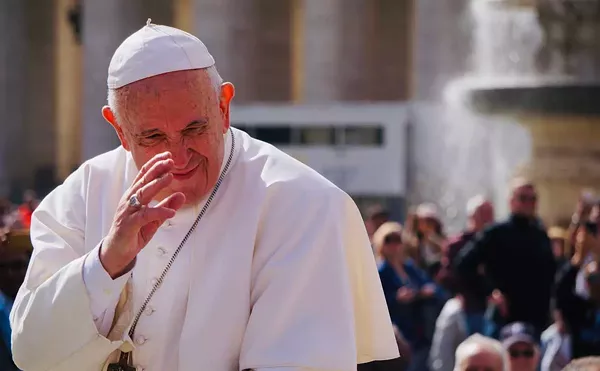
Audio By Carbonatix
[
{
"name": "GPT - Leaderboard - Inline - Content",
"component": "35519556",
"insertPoint": "5th",
"startingPoint": "3",
"requiredCountToDisplay": "3",
"maxInsertions": 100,
"adList": [
{
"adPreset": "LeaderboardInline"
}
]
}
]
Director Spike Lee's first full-length documentary, 4 Little Girls, offers a straightforward, clear-eyed view of a tragic moment in American history -- the bombing of the 16th Street Baptist Church in Birmingham, Ala. in 1963, which claimed the lives of four young girls attending Sunday school there.
Eschewing a narrator, as well as the visual flourishes of his feature films, Lee constructs 4 Little Girls from the basic elements of most documentaries -- archival photographs, news footage, interviews -- and shows just how potent these storytelling devices can be.
The film begins on a somber tone by showing the gravestones of Addie Mae Collins, Denise McNair, Carol Robertson and Cynthia Wesley. Then, through the stories told by surviving family members and friends, the girls begin to emerge from the granite and come to life.
Lee skillfully begins to work in a brief history of Birmingham and the civil rights movement there, always anchoring information in the personal experiences of his interviewees, who include a number of activists.
Two important facts emerge: The 16th Street Baptist Church served as a political center in addition to a spiritual one, and by one point in 1963, the protest marches had grown to include a large number of adolescents and even children.
Working with editor and co-producer Sam Pollard (a PBS veteran), Lee moves the narrative to that fateful morning of the bombing -- the sense of loss is painfully palpable -- then beyond, examining the aftershocks.
Lee has so successfully created an insider's point of view, that whenever he shifts to an outsider -- as from a participant to a commentator -- the film falters somewhat. In a film such as this one, Alpha Robertson's discussion of her lingering anger over daughter Carol's death resonates much more than the Rev. Jesse Jackson's skillfully worded summation of the bombing's effect on the movement.
Illuminating history may be a major goal, but 4 Little Girls also exists for the little girls, in the hope that their deaths -- and lives -- won't be forgotten.
Serena Donadoni writes about film for the Metro Times. E-mail her at letters@metrotimes.com.





